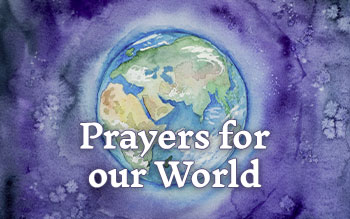Displaying items by tag: peace negotiations
Afghanistan: Taliban Release Hostages in Exchange For 3 Militants
Two western hostages held for more than three years by Taliban forces in Afghanistan were freed today in south-eastern Zabul province in exchange for three Taliban commanders held by the Kabul government, an Afghan official tells NPR's Diaa Hadid. The official requested anonymity because he is not authorized to speak to the news media.
The Taliban has issued a statement saying they released 10 Afghan soldiers along with the two hostages. The group called the prisoner exchange "a step forward in good-will and confidence building measures" that could help the peace process.
Kevin King, an American, and Timothy Weeks, an Australian, were abducted at gunpoint from a car in 2016 just outside the walls of the American University of Afghanistan, in Kabul. Both worked as teachers at the university.
Last week Afghan President Ashraf Ghani said his government would release three prominent Taliban figures in a deal securing the freedom of King and Weeks.
In an address broadcast on state television, Ghani said he had granted the "conditional release" of three members of the Haqqani network, which is linked to the Taliban.
"We have decided to release these three Taliban prisoners who were arrested outside of Afghanistan," Ghani said, in order "to facilitate direct peace negotiations," The Associated Press reported.
The Taliban figures that were released are Anas Haqqani, Haji Mali Khan and Hafiz Rashid.
Anas Haqqani is the younger brother of the Taliban's deputy leader. He is also the son of the founder of the Haqqani Network, a Sunni Islamist militant organization that's responsible for some of the highest-profile attacks in the Afghan war, including assaults on the Kabul Intercontinental Hotel and the Indian Embassy in Kabul.
He has been in Afghan custody since 2014, when he was arrested in Bahrain, the AP reports.
A Taliban official said the three prisoners were flown to Qatar Tuesday, where the Taliban maintains a political office. The release of King and Weeks was apparently held up until the Taliban confirmed its prisoners had been turned over to its representatives in Qatar.
"Today, the United States welcomes the release of Professors Kevin King and Timothy Weeks," Secretary of State Mike Pompeo said in a statement hours after the release. "Both men were successfully recovered this morning, are in the care of the U.S. military, and will soon be reunited with their loved ones."
While saying that the U.S. "condemns the taking of innocent civilians as hostages," Pompeo also added that the U.S. "welcomes" the Taliban's goodwill gesture.
The American University of Afghanistan said in a statement last week that it was "encouraged to hear reports of the possible release of our two colleagues .... While AUAF is not part of these discussions, we continue to urge the immediate and safe return of our faculty members who have been held in captivity, away from their friends and families, for more than three years."
U.S. Ambassador to Afghanistan John Bass also said last week the U.S. "strongly supported" the release of the three Haqqani commanders, according to Afghan news site TOLOnews.
"This is the latest in a series of courageous steps that President Ghani and the Afghan government have taken to respond to the Afghan people's overwhelming desire for peace," Bass told TOLOnews.
The Taliban released two videos of the hostages in 2017, including one that showed the captives looking sickly, though they appeared healthier in the later video, the AP reports.
A separate attack by the Taliban on the American University in 2016 killed at least seven students and six guards.
President Trump has made a priority of getting American hostages released, and has secured the freedom of about 10 hostages held abroad.
More: https://whro.org/news/5171-taliban-release-american-and-australian-hostages-in-exchange-for-3-militants Written by Laurel Wamsley
Pray: for these continued efforts to warm relations between the parties in Afghanistan and abroad to lead to positive and constructive peace talks.
Pray: for the people of Afghanistan who yearn for a peaceful and safe country.
Syria: peace-making in Russia
As 2017 closes, Syrian warring parties are moving towards reconciliation - but America is not among them. IS is all but defeated: the Syrian army and its allies are closing in on the few remaining pockets occupied by other extremists. Donald Trump may have hinted at changes, but he’s treading the same path as Obama on Syria. Determined to oust Syria’s President Assad as a means to weaken Iran and re-establish American regional control, Barack Obama gambled on two pathways to this goal: 1) military strategy to snatch control over Syria from the regime; 2) UN/American mediation in Geneva to remove Assad. Washington lost its military venture when the Russian air force entered the battle; next it resuscitated a limp Geneva peace process for political settlement without Assad. It failed. But a fresh process is being established in Sochi, not Geneva, with Iranians, Russians and Turks carving out ceasefire zones and negotiating peace.

